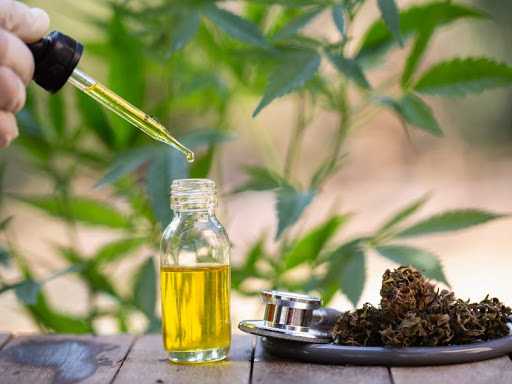The recent announcement that the British drug regulatory agency has reclassified CBD as a medicine can be seen as an advance, but also as a setback for consumers and manufacturers. We look at how these changes will affect patients and what they mean for the total legalization..
In early 2017, fans around the world welcomed the announcement by the Medicines and Healthcare Products Regulatory Agency (MHRA). The MHRA has just classified cannabidiol (CBD) as a medicine and will officially reclassify it as such.
This unprecedented decision is a bittersweet landmark for the United Kingdom. Although the medicinal benefits of cannabinoids are finally recognised, patients who are already using CBD products risk losing access to the medicine they rely on.
AND NOW WHAT?
This shift will result in a major restructuring of CBD manufacturing practices and increased oversight of CBD production by medical regulatory agencies. These measures are in place to ensure that manufacturers comply with all regulations detailed in the Medicines Regulation 2012.
The primary goal of the organization under the MHRA itself is to improve patient safety by ensuring consistent and transparent manufacturing and marketing practices.
CBD: AN ANALYSIS
CBD is the second most abundant cannabinoid, the genus to which both psychoactive and non-psychoactive varieties belong. CBD is secreted by the resin-producing glands, the trichomes, in different concentrations in each strain.
This cannabinoid is known to produce synergistic effects when used in conjunction with THC, mitigating the side effects of psychotropic reactions. Normally considered the cannabinoid with the most therapeutic potential, CBD continues to impress scientists with each new discovery.

In addition to its potential as a treatment for physical symptoms such as inflammation and chronic pain, CBD shows great promise as an ingredient for medication targeting anxiety disorders and other mental health problems. These examples represent just a few of the many medical discoveries that have emerged from preliminary studies of CBD in both animal and human trials.
THE BASICS
Considering the traditional lack of regulations in the UK, the decision of the MHRA to classify CBD as a medicine has come as something of a surprise. There are two reasons for this: the decision was taken primarily because of the worrying trend for manufacturers to make big medical promises about their CBD products. However, the MHRA has finally recognized the legitimate potential of CBD for human health, after years of scientific findings.
Now, the MHRA requires that all licensed medicinal products “meet standards of safety, quality and efficacy” to protect consumer health. While this is an effective maneuver to stop irresponsible producers from selling misleading products, it also puts manufacturers of quality products at risk.
AN EXPENSIVE CHANGE
The new regulations triggered by the reclassification come after 18 CBD producing companies across the country were notified of the MHRA’s position, forcing them to stop their operations in the meantime. From now on, any company must apply for a license or “marketing authorisation” to produce CBD medicinal products. In addition, the licence must be accompanied by a payment of £103,000 to comply with the new quality standards.
The MHRA will allow for certain exemptions from this authorisation, which will have to be managed on a case-by-case basis. In addition, producers are prohibited from advertising any unlicensed products, even those that are exempt.
Following more stringent guidelines, the MHRA’s endorsement of the medicinal efficacy of CBD is likely to result in a more limited scope for the time being. So far, the organization has not commented on the application of CBD that it considers most effective. However, it has released a statement revealing findings that demonstrate that CBD has a “restorative, corrective or transformative effect on physiological functions” in humans.
If you want to learn more about best cbd oil in uk, Just visit their website to get more information.


